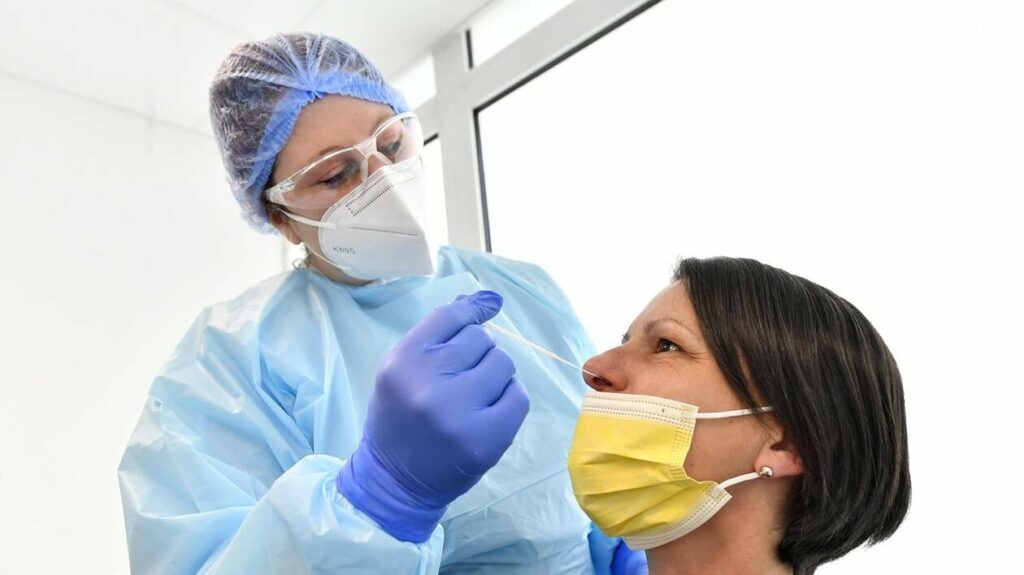“I have had all my vaccinations. The last (reminder) on December 1, 2021. On December 10, I tested positive for Covid-19. Should I consider this as a fourth dose? »asks Francois.
Indeed, according to the latest recommendations from the Ministry of Health, a Covid-19 infection equals a vaccine injection. It all depends, however, on when you were infected: more than three months after your booster, or less than three months.
“If the infection occurred more than three months after the first booster, a second booster is not necessary. Indeed, the occurrence of an infectious episode provokes an immune response at least equivalent to that of a booster vaccine.we read on the website of the Ministry of Health.
And “If the infection occurred less than 3 months after the first booster, a second booster is necessary. It is then advisable to wait at least 3 months after infection, for people aged 80 and over, residents of nursing homes and USLDs or 6 months after infection for people aged 60 to 79 before carry out the second vaccination booster ».
In your case, therefore, François, your infection is not equivalent to a new dose of vaccine because it occurred too soon after the injection of your booster vaccine, namely ten days later.
Read also: Covid-19. Is the fourth dose mandatory? We answer you
To go further and understand if an infection is equivalent to a dose of vaccine, we asked Yannick Simonin, virologist and research professor at the University of Montpellier. Maintenance.
Antibodies against Spike
What happens in the body during a vaccine injection or an infection?
When one is vaccinated or infected against Covid-19, the first response is a humoral response. The body then produces antibodies after a few days to block the entry of the virus. Then several weeks later, there is the immune response which is a memory response. The cells prepare to react again in the event of an infection.
In the case of Covid-19, RNA vaccines are effective because they stimulate both types of responses. There are vaccines that only stimulate the humoral response, for example, this is the case with inactivated vaccines, and therefore probably the Sinovac vaccine. But in most cases, in Europe, with the vaccines used, we have this double stimulation.
What about the quality of the immune response, either in the event of infection or in the event of vaccination?
There are actually different immune responses. With vaccination, the antibodies are directed towards the Spike protein, whereas with a Covid infection, the body develops antibodies which also go towards other proteins of the virus.
With vaccination, the antibodies developed are more numerous and more effective against Spike, following an infection, the antibodies also go against other pieces of the virus, which can be likened to a dilution of the immune system. He’s not just battling the Spike protein.
Read also: Covid-19. I was infected after my third dose, am I well protected?
With Omicron, having just been infected, but not vaccinated, is not enough protection.
When do you get the best protection?
With the Omicron variant, the data suggest that one is better protected after vaccination than after infection. Very often, we are better protected with an infection but here with this variant vaccination would be more effective.
The best protection corresponds to a vaccination, two doses, followed by an infection. There the antibodies are more important and more stable over time. Both doses of vaccine reduce the intensity of symptoms.
Two doses or three doses, followed by an infection, is where the best stimulation is obtained. With Omicron, having just been infected, but not vaccinated, is not sufficient protection.
Read also: Covid-19. Incubation, contagiousness, symptoms: what have the Omicron variants changed?
Protected for how many months?
Does this therefore meet the recommendations of the Ministry of Health in terms of vaccination? The ministry explains that an infection can replace a booster shot in some cases.
Yes that’s it. But a person who is only infected, who has not been vaccinated, cannot be considered to have had a dose of vaccine.
What is the knowledge on the duration of protection provided by vaccines?
Protection against symptomatic forms is estimated at 4-5 months after the vaccine dose, then it becomes weaker but protection against severe forms is still there, at around 80%.
Hence a fourth dose for the over 60s which allows the levels of protection to be increased. There may be an incentive for a booster dose in the general population at the start of the school year in September, but this will depend on the variants circulating at that time.
Read also: Covid-19. A sharp decline in cases observed in France: what should we expect for this summer?
We are heading for a period of calm in the coming months. We have a pool immune responses in the population: people fully vaccinated, those vaccinated then infected, those who have been infected with different variants… But a person who has never been vaccinated and infected with Omicron will only have weak protection.

